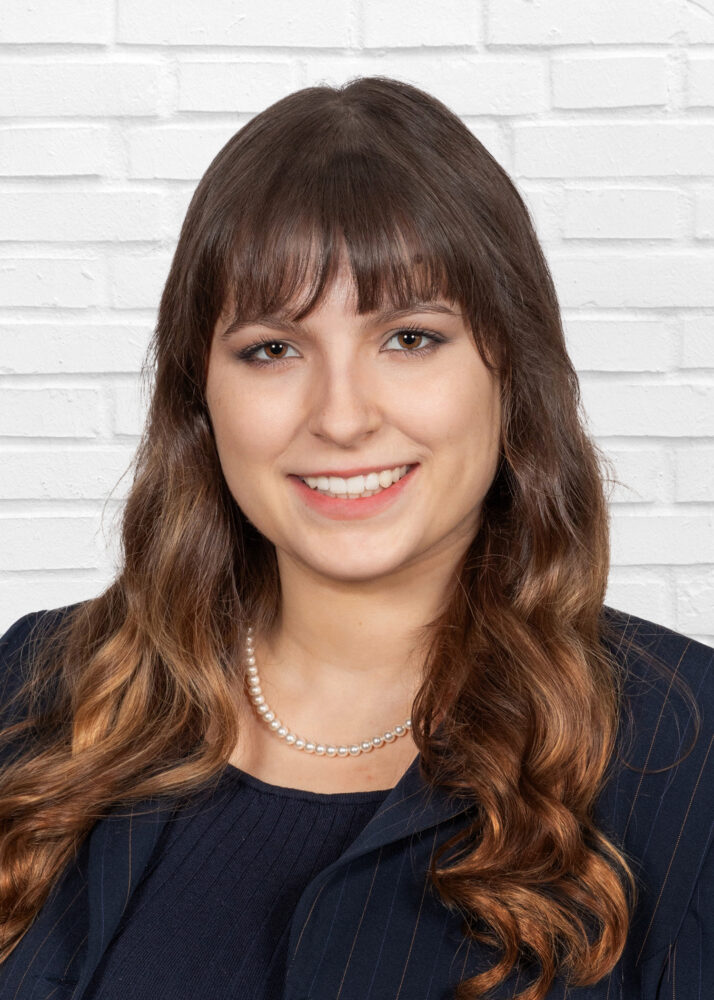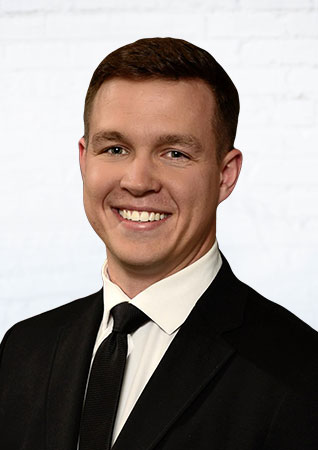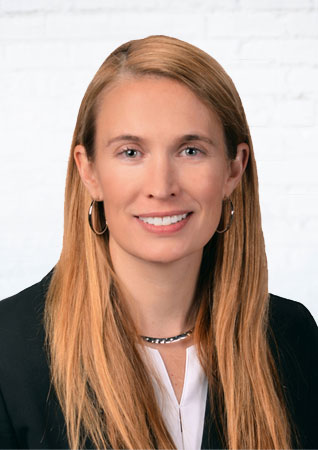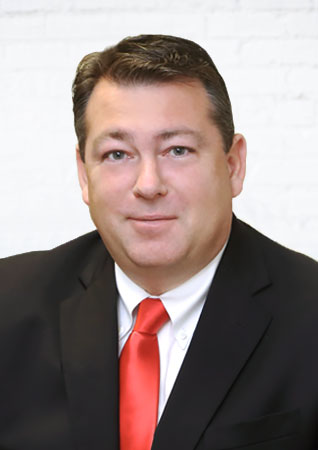Proving Liability for Your Richmond Wrongful Death Claim
Establishing liability in a wrongful death case is absolutely critical – you must definitively prove that another party’s negligence, recklessness, or intentional actions directly caused the fatal accident. Virginia follows particularly strict contributory negligence rules, where if the deceased is found even 1% at fault, the entire claim could be completely barred. This is why having strong, comprehensive legal evidence is absolutely essential in proving liability.
Key elements in a wrongful death claim include:
- Duty of care: The responsible party had a legal obligation to act safely (e.g., a doctor following medical standards, a driver obeying traffic laws).
- Breach of duty: The defendant failed to meet this duty, such as a reckless driver causing a crash or a property owner ignoring known hazards.
- Causation: The breach directly led to the fatal incident—proving that the death would not have occurred without the defendant’s actions.
- Damages: The death caused financial and emotional harm, such as medical bills, funeral costs, and lost financial support.
Proving these elements often requires expert testimony, accident reconstructions, and thorough evidence collection. In complex cases involving multiple liable parties (such as trucking accidents or medical malpractice claims), legal representation from an experienced wrongful death lawyer is crucial to holding negligent parties accountable.
For answers to your questions about a wrongful death in Richmond, call:800-321-6741
What Are the Common Causes of Wrongful Death Accidents?
In our experience representing families in Richmond, we have successfully handled many types of wrongful death cases. Through years of helping grieving families seek justice, we commonly see fatal accidents caused by:
- Motor vehicle accidents: Car crashes, motorcycle wrecks, and hit-and-run accidents caused by reckless or impaired drivers frequently result in fatalities.
- Medical malpractice: Misdiagnoses, surgical errors, or medication mistakes can turn avoidable health issues into fatal outcomes.
- Defective products: Faulty machinery, dangerous drugs, and unsafe consumer products can cause deadly accidents due to manufacturer negligence.
- Workplace accidents: Fatal falls, industrial equipment malfunctions, and unsafe work environments contribute to wrongful death claims, especially in construction and factory settings.
- Premises liability incidents: Fatal injuries can occur due to slip-and-fall accidents, inadequate security, or unsafe building conditions.
In each of these cases, proving that another party could have prevented the fatality is key to obtaining compensation. Your attorney will gather medical records, safety reports, and expert testimony to strengthen a wrongful death claim.
Who Can Bring a Wrongful Death Claim in Richmond, Virginia?

Virginia law determines who is eligible to file a wrongful death claim based on their relationship to the deceased. Under Virginia Code § 8.01-53, the following parties may pursue a claim:
- Spouse and children: The primary beneficiaries in a wrongful death lawsuit. If the deceased had no children, the spouse is the sole claimant.
- Parents and siblings: If the deceased was unmarried and childless, surviving parents or siblings may file a claim.
- Financial dependents: Any blood relative or adopted family member who lived with and was financially supported by the deceased can be eligible.
- Estate representative: If no direct family members exist, the wrongful death claim may be filed by the estate’s legal representative, with compensation distributed to heirs.
Virginia law prioritizes immediate family members, but complex situations arise when divided families, dependent relatives, or disputed wills are involved. An experienced wrongful death lawyer can clarify who is eligible to file and ensure compensation is pursued properly.
If you have lost a loved one due to someone else’s negligence, securing legal representation early can help protect your rights and financial future.
Click to contact us today
How is a Wrongful Death Different from a Personal Injury?
Personal injury claims, like wrongful death claims, are both legal claims based on negligence. A wrongful death claim is essentially a personal injury claim that has turned into a wrongful death claim because the plaintiff has died due to his or her injuries. This means that the “injury” in a personal injury claim becomes the injuries sustained by the estate or loved ones of the decedent. In a personal injury claim, “injury” refers to the actual physical and emotional injuries sustained as a result of the negligence of another.
Depending on the state, there may also be differences in the statutes of limitations between a personal injury claim and a wrongful death claim. The statute of limitations is the window of opportunity an injured person—or the family of the decedent—has in which to file their claim. In the state of Virginia, the statute of limitations is two years for wrongful death claims and two years for personal injury claims.
Complete a Free Case Evaluation form now
How Does Virginia Define Wrongful Death?
In Virginia, a wrongful death is defined as a death caused by the wrongful act, neglect, or default of another person or entity. Essentially, if the deceased could have pursued a personal injury claim had they survived, then a wrongful death claim is valid. The wrongful act or neglect must be proven to have directly caused the death.
The purpose of a wrongful death claim is to provide compensation to the surviving family members and to hold the responsible party accountable for their actions. The compensation can cover economic losses, such as medical and funeral expenses, as well as non-economic losses, such as pain and suffering and loss of companionship.
Wrongful Death Scenarios
Wrongful death can unfortunately emerge from situations where the careless or wrongful actions of another party result in the loss of a loved one. With decades of experience helping affected families, we have seen common circumstances giving rise to wrongful death claims:
- Motor Vehicle Accidents: Instances where a person’s life is tragically cut short due to a car accident, truck accident, or motorbike accident caused by another party’s negligence or recklessness on the road.
- Medical negligence: Wrongful deaths stemming from medical errors, misdiagnoses, or negligence exhibited by healthcare professionals during the course of treatment.
- Product defects: Fatalities resulting from defective products, ranging from hazardous vehicles and contaminated foods to inadequately designed consumer goods.
- Premises-related accidents: Loss of life due to unsafe conditions on another individual’s property, including scenarios like slip and fall accidents.
These situations represent just a few examples of the common circumstances that can lead to wrongful death lawsuits. Regardless of the specific circumstances surrounding your case, our team of compassionate lawyers will help you find justice.
Statute of Limitations for Wrongful Death Claims

In Virginia, the statute of limitations for filing a wrongful death lawsuit is two years from the date of the victim’s death. However, there are some exceptions to this deadline. For example, if the victim was a minor, the statute of limitations may be extended. The statute of limitations has a strict deadline, and if the lawsuit is not filed within this timeframe, the right to file and recover damages on the deceased’s behalf may be permanently lost
Who Can Receive Compensation From a Wrongful Death Case?
In Virginia, certain family members and other representatives of the deceased have the right to file a wrongful death lawsuit. The compensation awarded in a wrongful death claim must be distributed among the statutory beneficiaries of the deceased, which include:
- The surviving spouse and the children (or grandchildren if the child of the deceased is also deceased)
- Parent(s)
- Brothers and sisters
- If the deceased had no surviving spouse, child, or grandchild, the next eligible beneficiaries would be surviving parents or siblings.
- Any other relative who relied on the deceased for support and services and was a member of the same household (including relatives by blood, marriage, or adoption)
- When there are no surviving family members, but there is a relative who depended on the deceased and resided in the same household, then that individual would be next in line.
If the deceased had no surviving family members, the right to file a wrongful death claim would belong to the person entitled to inherit the deceased’s estate under Virginia’s intestacy laws.
What Damages Can You Recover in a Virginia Wrongful Death Lawsuit?
In a Virginia wrongful death lawsuit, the surviving family members or representatives of the deceased can seek various types of damages to compensate for their loss. These damages are intended to address both the financial and emotional impacts of the death. The potential damages you can recover include:
Economic Damages
- Medical Expenses: Costs incurred for the medical treatment of the deceased before their death.
- Funeral and Burial Expenses: Reasonable costs for the funeral and burial services.
- Loss of Income: Compensation for the income the deceased would have earned if they had lived.
- Loss of Services and Support: The value of the services, protection, care, and assistance the deceased provided to their family.
Non-Economic Damages
- Loss of Companionship: Compensation for the loss of love, comfort, and companionship that the deceased provided.
- Mental Anguish: Damages for the emotional pain and suffering experienced by the surviving family members.
- Loss of Guidance: The value of the guidance, advice, and nurturing that the deceased would have provided to their children.
Punitive Damages
- Punitive Damages: In cases where the death was caused by willful or wanton conduct, or recklessness, punitive damages may be awarded to punish the wrongdoer and deter similar behavior in the future.
Each wrongful death case is unique, and the specific damages available can vary based on the circumstances of the case. Consulting with an experienced wrongful death attorney in Virginia can help you understand the full extent of the damages you may be entitled to and ensure that your legal rights are protected.
Why Choose a Richmond Wrongful Death Attorney from Tronfeld West & Durrett?
Following the wrongful death of a loved one, you may not want to share your pain and grief with a stranger. This is entirely understandable. However, at Tronfeld, West & Durrett, we believe our level of empathy and compassion will put you at ease and begin building trust. Our attorneys are highly experienced and wholly dedicated to your best interests and those of your family. We will work with you on a personal basis, answering your questions and concerns comprehensively yet in an easy-to-understand manner.
We believe you need time to grieve the loss of your loved one, and we will allow you that time while we handle the legalities of your wrongful death claim. We are one hundred percent dedicated to obtaining the best wrongful death settlement quickly and professionally. The Tronfeld West & Durrett attorneys have been practicing since 1972, so they have a wealth of experience to benefit you and your family.
How Long Will My Wrongful Death Claim Take?
You may wonder how long your wrongful death claim will take to settle. This will depend on many different factors, meaning it could take only a few months or could take a year or longer. If you and your family members are struggling to make ends meet following the death of your loved one and the loss of his or her income, how quickly the claim settles can make a huge difference to you. Taking the first settlement offered by the insurance company can be tempting. Unfortunately, it is in the insurance company’s best interests for you to do just that. The goal of insurance companies is to pay out as little as possible.
Insurance companies are counting on you needing the money so badly that you will accept a first (low) offer. This may not be in your best interests, and this is where an experienced Richmond wrongful attorney comes in. Once you have a highly qualified attorney by your side, the insurance company immediately gives your claim—and you—more respect. This translates directly into a much more significant, equitable settlement amount. Your attorney will ensure you are fully and fairly compensated for the losses you’ve suffered after gathering all information related to your losses. Your attorney will negotiate with the insurance company. However, a trial will be set if no settlement is reached, which will take longer than a settlement.
Who Can File a Wrongful Death Claim in Virginia?
Some states allow the decedent’s surviving family members to file a wrongful death claim, while others only allow a personal representative or executor to file a wrongful death claim. In the state of Virginia, a personal representative must file a wrongful death claim. Any damages obtained by the wrongful death claim by the personal representatives must go to the statutory beneficiaries of the decedent. Statutory beneficiaries in the state of Virginia include:
- The surviving spouse and children (or grandchildren, if the decedent’s child is also deceased)
- If the decedent left no surviving spouse, child, or grandchild, the next in line for the proceeds of a wrongful death claim would be surviving parents or siblings.
- If there are no surviving relatives, but there is a relative who depended on the decedent and shared a household with the decedent, then that individual would be next in line.
- When there are none of the people listed above, any surviving family member—even cousins, aunts, etc.—would receive the benefits of a wrongful death claim.
How Can A Richmond Wrongful Death Attorney From Tronfeld West & Durrett Help?
A highly skilled Richmond wrongful death attorney will work hard to obtain a fair settlement on your behalf. We are experienced local lawyers who have been helping our neighbors in need for nearly five decades. Each of our partners is native to this area, born and raised in Virginia. Two partners served in the military and are strongly involved in the community. For a professional, honest, experienced wrongful death attorney, contact Tronfeld West & Durrett today.
Wrongful Death FAQ
How Are Wrongful Death Settlements Calculated?
Wrongful death settlements are calculated based on several factors, including the financial losses suffered by the survivors, such as medical expenses, funeral costs, and lost wages. Additionally, non-economic damages, such as pain and suffering and loss of companionship, may also be considered.
How Long Does A Wrongful Death Lawsuit Typically Take?
The duration of a wrongful death lawsuit can vary depending on various factors, including the complexity of the case and the willingness to negotiate a settlement. Some cases can be resolved within a few months, while others may take several years to reach a resolution.
Can A Wrongful Death Lawsuit Be Filed If The Deceased Had A Pre-Existing Condition?
Yes, a wrongful death lawsuit can still be filed even if the deceased had a pre-existing condition. The key factor in determining liability is whether the actions of the responsible party directly contributed to the death.
Can Multiple Parties Be Held Responsible In A Wrongful Death Lawsuit?
Yes, multiple parties can be held responsible in a wrongful death lawsuit if their actions or negligence contributed to the death. This can include individuals, companies, or even government entities.
Related Links
- Chesterfield Wrongful Death Lawyer
- Mechanicsville Wrongful Death Lawyer
- Petersburg Wrongful Death Attorney
Richmond Office
4020 West Broad St
Richmond, VA 23230
Phone: 804.358.6741
Toll Free: 800.321.6741
Call or text 800-321-6741 or complete a Free Case Evaluation form








